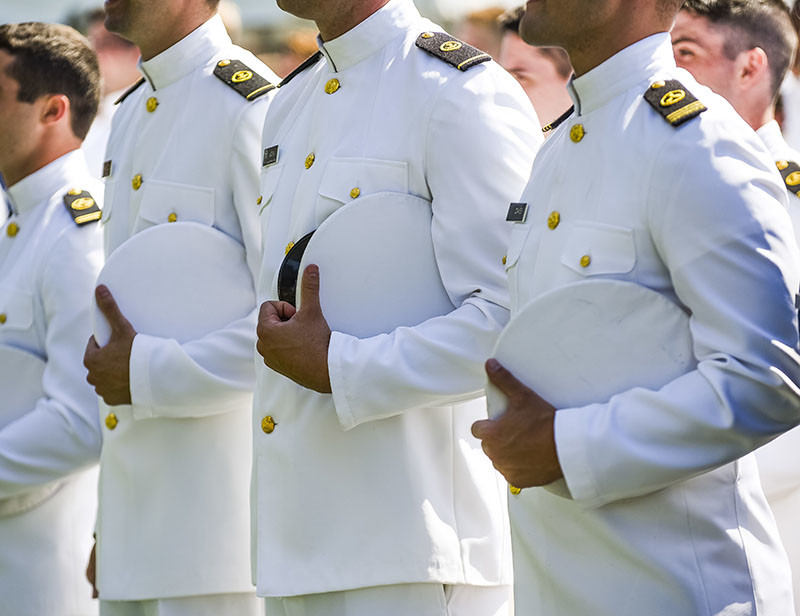A study commissioned by Congress and distributed last week found that the U.S. Merchant Marine Academy is off course.
The report, by the nonpartisan National Academy of Public Administration, said the Kings Point, N.Y., federal maritime school’s shortcomings in the areas of facilities and infrastructure (F&I), diversity, and preventing sexual harassment, “put the safety and health of the midshipmen and the entire USMMA community in peril.”
In light of previous studies, the report faulted academy leadership for being “reactive and risk-averse rather than strategy- or performance-driven.”
For example, the Department of Transportation’s 2010 “Red Sky in the Morning Report” found severe deterioration among many USMMA buildings. A decade later, “The systemic issues remain,” the NAPA study team concluded, “largely because the root causes have not been addressed.”
Midshipmen who spoke with the NAPA team cited dripping water pipes in classrooms, climate control issues, recurring plumbing problems in dormitory showers, and mold in dorm rooms.
“A lot of times, the AC units don’t work, and it could be 100 degrees in a classroom,” said one midshipman. “The best way I could describe the classrooms for me would just be pretty disgusting and not an environment where it facilitates good learning at all. It’s a little bit distracting if you’re dripping sweat because there’s no AC or water is dripping on you from the ceiling.”
The report called for a “substantial investment in [facilities and infrastructure]” but warned that dollars alone are not the answer. “The biggest obstacle to modernization is that F&I decision making is only loosely based on the mission, a future-oriented vision, the strategic plan, and need,” the report found.
Culturally, the NAPA team found that USMMA has made little progress in achieving diversity among faculty, staff, and students. With 77.2% white enrollment, King’s Point is the “whitest” service academy – albeit by a very slender margin. 2019 female enrollment was 21 percent. The demographics of faculty and staff reflect the student body.
“It is imperative,” said the report, “that we leverage all aspects of the nation’s diversity to include gender, ethnicity, religion, education, thought, sexual orientation, and cultural background to create and sustain an inclusive organization that attracts the best the nation has to offer.”
The school’s challenges with sexual harassment continue, the study found. A significant portion of incidents were said to take place off campus and during Sea Year, when students ship out on commercial vessels. In 2016, the so-called Sea Year Stand Down was a temporarily halt to the program as a result of bullying, coercion, sexual harassment, and assault.
The NAPA report offered the USMMA a demanding regimen to confront its ongoing challenges.
“The charge to address these changes is significant and will require meaningful leadership attention, strategic prioritization, and substantial resource commitments,” the NAPA team said.
Founded in 1943, USMMA is one of the of five federal service academies. Graduates are licensed Merchant Marine officers and commissioned officers in the U.S. armed forces. Its admission standards are high and the curriculum, which includes a year at sea, is rigorous. Graduates must fulfill a five-year service obligation.



